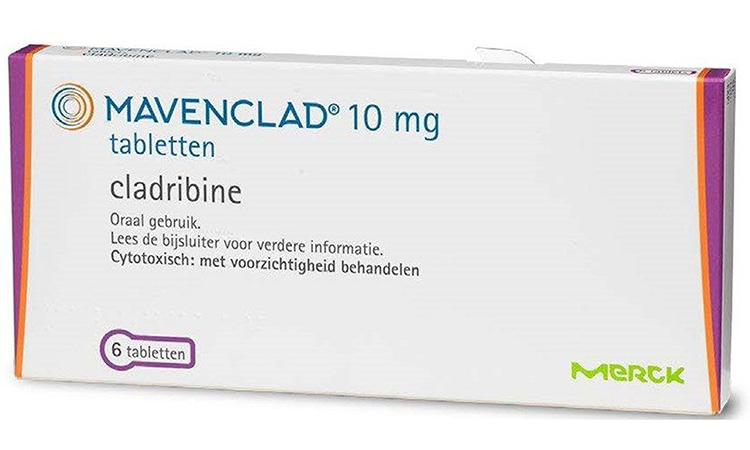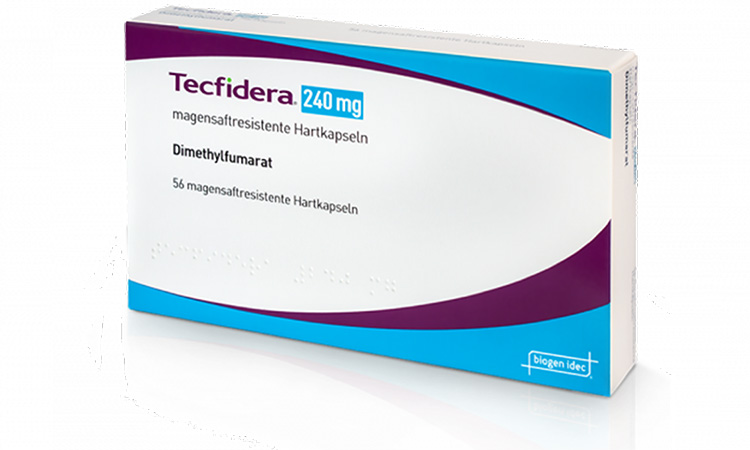Mavenclad (cladribine) vs Tecfidera (dimethyl fumarate)
Mavenclad (cladribine) vs Tecfidera (dimethyl fumarate)
Mavenclad (cladribine) is an oral medication typically administered in two treatment courses over two years and is designed for the treatment of relapsing forms of multiple sclerosis (MS), with a mechanism that targets lymphocytes to reduce their numbers, potentially leading to a reduction in MS activity. Tecfidera (dimethyl fumarate) is another oral medication for relapsing MS, taken twice daily on an ongoing basis, and it is thought to work by activating a pathway that protects cells from oxidative stress, which may reduce inflammation and demyelination in the CNS. When deciding between Mavenclad and Tecfidera, patients should consider factors such as dosing schedule, side effect profile, mechanism of action, and their own lifestyle and preference, in consultation with their healthcare provider.
Difference between Mavenclad and Tecfidera
| Metric | Mavenclad (cladribine) | Tecfidera (dimethyl fumarate) |
|---|---|---|
| Generic name | Cladribine | Dimethyl fumarate |
| Indications | Multiple sclerosis | Multiple sclerosis |
| Mechanism of action | Antimetabolite; purine analog | Nrf2 pathway activator |
| Brand names | Mavenclad | Tecfidera |
| Administrative route | Oral | Oral |
| Side effects | Lymphopenia, leukopenia, infections | Flushing, gastrointestinal issues |
| Contraindications | HIV infection, active chronic infections | Known hypersensitivity to dimethyl fumarate |
| Drug class | Antimetabolite | Fumaric acid ester |
| Manufacturer | Merck | Biogen |
Efficacy
Mavenclad (Cladribine) Efficacy in Multiple Sclerosis
Mavenclad, also known by its generic name cladribine, is a medication approved for the treatment of relapsing forms of multiple sclerosis (MS), including relapsing-remitting disease and active secondary progressive disease, in adults. Clinical trials have demonstrated that Mavenclad is effective in reducing the frequency of MS relapses and in slowing the progression of disability associated with MS. The CLARITY study, a key phase III clinical trial, showed that patients treated with cladribine had a significant reduction in annualized relapse rate compared to those who received a placebo. Additionally, cladribine was associated with a reduction in the number of lesions visible on MRI scans, which are indicative of disease activity.
Tecfidera (Dimethyl Fumarate) Efficacy in Multiple Sclerosis
Tecfidera, or dimethyl fumarate, is another oral medication approved for the treatment of relapsing forms of multiple sclerosis. Tecfidera has been shown to reduce the rate of MS relapses, slow the progression of disability, and decrease the number of new or enlarging brain lesions as seen on MRI. The efficacy of Tecfidera was established in two pivotal phase III clinical trials, DEFINE and CONFIRM. These studies reported that patients taking Tecfidera experienced fewer clinical relapses and had fewer brain lesions compared to those taking a placebo or an alternative MS medication (glatiramer acetate in the CONFIRM study).
Comparative Efficacy and Considerations
When comparing Mavenclad and Tecfidera, both medications have been shown to be effective in the management of relapsing forms of MS. However, the choice between these two medications may depend on various factors, including patient preference, side effect profile, dosing schedule, and potential risks. Mavenclad is typically administered as a short course of treatment over a few days per year, which may be an advantage for some patients in terms of convenience. Tecfidera, on the other hand, requires twice-daily dosing, which may be preferred by patients who are more comfortable with a regular medication routine.
Conclusion
Both Mavenclad and Tecfidera have been proven to be effective treatments for relapsing forms of multiple sclerosis, significantly reducing relapse rates and slowing disease progression. The selection of either medication should be tailored to the individual patient's clinical circumstances, preferences, and treatment goals, with a thorough discussion of the benefits and risks of each therapy. As with all medications, it is important for patients to be monitored regularly by their healthcare provider to ensure the best possible outcomes.
Regulatory Agency Approvals
Mavenclad
-
European Medical Agency (EMA), European Union

-
Food and Drug Administration (FDA), USA

-
Health Canada

-
Therapeutic Goods Administration (TGA), Australia

-
Medsafe (NZ)

Tecfidera
-
European Medical Agency (EMA), European Union

-
Food and Drug Administration (FDA), USA

-
Health Canada

-
Therapeutic Goods Administration (TGA), Australia

-
Medsafe (NZ)

Access Mavenclad or Tecfidera today
If Mavenclad or Tecfidera are not approved or available in your country (e.g. due to supply issues), you can access them via Everyone.org.
How it works

Make an enquiry
Choose the medicine you want to buy, answer a couple of questions, and upload your prescription to speed things up. We’ll get back to you within 24 hours.


Make an enquiry
Choose the medicine you want to buy, answer a couple of questions, and upload your prescription to speed things up. We’ll get back to you within 24 hours.


Breeze through the paperwork
We'll guide you through the required documents for importing unapproved medicine, ensuring you have all the necessary information.


Get a personalized quote
We’ll prepare a quote for you, including medicine costs and any shipping, administrative, or import fees that may apply.


Receive your medicine
Accept the quote and we’ll handle the rest - sourcing and safely delivering your medicine.

Some text on this page has been automatically generated. Speak to your physician before you start a new treatment or medication.
Let's talk
If you have any questions, call us or send us a message through WhatsApp or email:
Contact us




